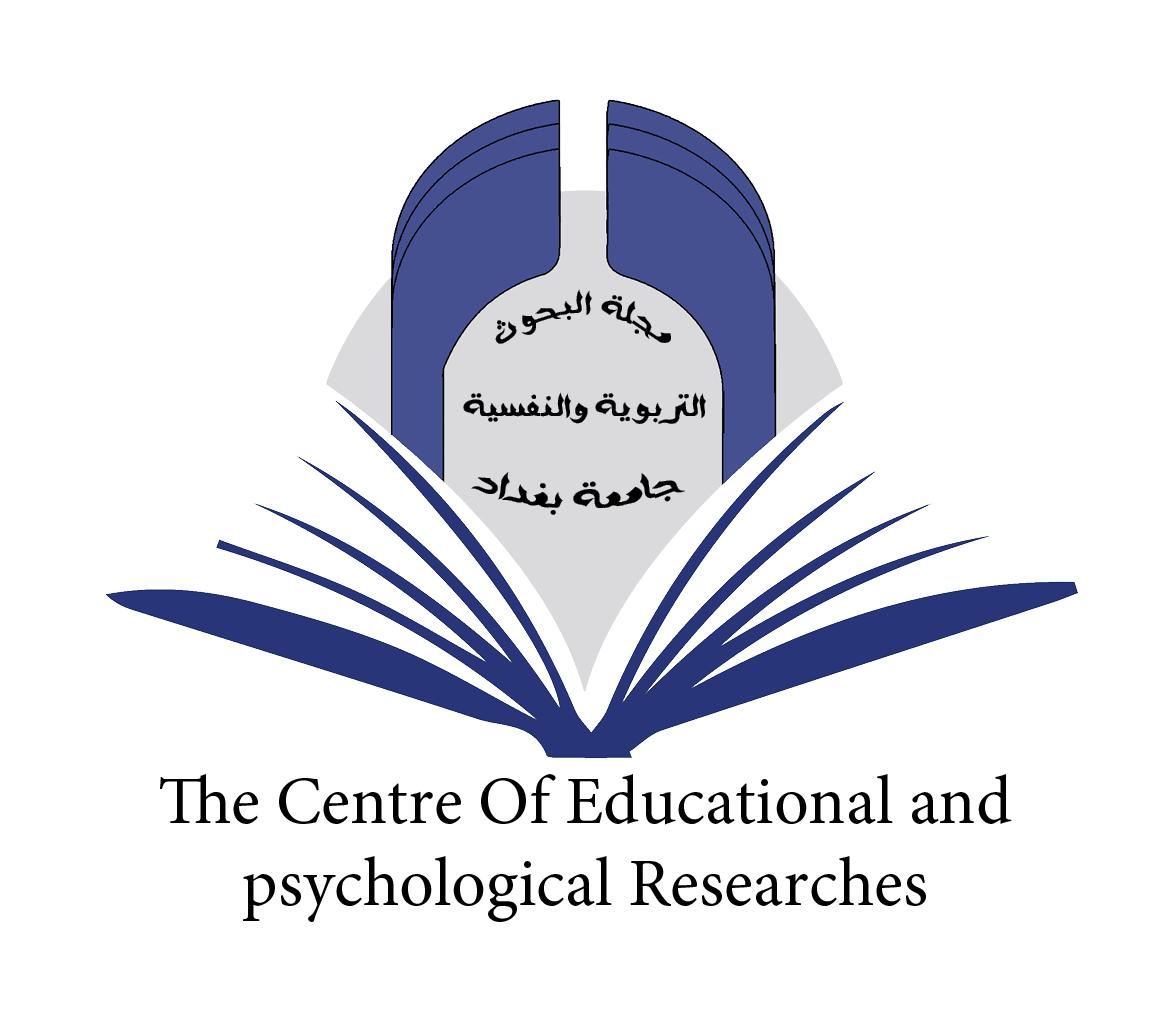Work Passion and Its Relationship to Emotional Intelligence among Sample of Educational Counselors
DOI:
https://doi.org/10.52839/0111-000-085-0010Keywords:
work passion, emotional intelligence, educational counselorsAbstract
The current research aims to identify work passion and emotional intelligence among educational counselors, the differences in work passion and emotional intelligence in terms of gender and years of service, and the correlation between work passion and emotional intelligence of educational counselors. A sample of 200 male and female counselors affiliated with the second Karkh Education Directorate in Baghdad Governorate for the academic year (2023-2024) was selected randomly. To achieve the research objectives, the Chin et al. (2022) scale and the Golman (1995) scale were adopted to collect data. The results revealed that educational counselors have a passion for work and emotional intelligence. There are no significant differences in work passion in terms of gender and years of service. There are statistically significant differences in emotional intelligence in terms of years of service and gender, in favor of males. There is a statistically significant correlation between emotional intelligence and work passion. According to these results, the researcher came out with a set of recommendations and suggestions.
Downloads
References
المراجع العربية
1.أبو غزال، معاوية محمود (٢٠١٥):علم النفس العام ، ط٢ ، دار وائل للنشر ، عمان ، الأردن.
2.الحطاب، زبيدة (٢٠١٠):علاقة المخططات المبكرة غير المكيفة والذكاء العاطفي بالفشل الاكاديمي ، رسالة دكتوراه ، جامعة الجزائر.
3.الحربي، العنود بنت فيصل (٢٠٢٠): الذكاء الوجداني وعلاقته بالاحتراق النفس لدىالاخصائيات النفسيات في مدينة الرياض، مجلة كلية التربية ،جامعة الازهر :العدد(١٨٦)، الجزء الثالث.
4.حسين ، سلامة عبد العظيم وحسين ، طه (٢٠٠٦):الذكاء الوجداني للقيادة التربوية ، الإسكندرية : دار وفاء لدنيا الطباعة والنشر .
5.الدبيب ، محمد احمد محمد (٢٠٢٣)الذكاء الوجداني وعلاقته بالتوافق المهني لدى المرشد النفسي في مؤسسات التعليم العالي بمدينة بني وليد ،المجلة الافريقية للدراسات المتقدمة في العلوم الإنسانية والاجتماعية ، المجلد الثاني ،العدد(٣).
6.الزهراني ،عبد الله احمد (٢٠١٤):الذكاء الإنساني ، الاتجاهات المعاصرة وقضايا نقدية ، سلسلة عالم المعرفة ، العدد ٣٢٥: الكويت ، المجلس الوطني للثقافة والفنون والاداب .
7.السعداوي ، ايمان فيصل السيد (٢٠٢٣):دور القيادة الروحية في تعزيز الشغف الوظيفي من خلال تطبيق نموذجPRAME للسعادة الوظيفية (دراسة تطبيقية )، المجلة العلمية للبحوث التجارية ، العدد (١).
8.القرني ، علي بن محمد علي (. ٢٠١٤): الذكاد الوجداني وعلاقته بمهارات الاتصال لدى المرشدين الطلابين ، جامعة الملك عبد العزيز ، قسم علم النفس التربوي والإرشاد .
9.اليوبي ، محمد عابد و شقرون ، غازي حسين (٢٠٢٣):الذكاء العاطفي وعلاقته بالرضا الوظيفي اثناء فترة كورونا لدى موظفي جامعة الملك عبد العزيز في ضوء بعض المتغيرات ،المجلة العربية للنشر العلمي ، العدد (٤٥).
10.دلال ، سلامي (٢٠١٦)الذكاء العاطفي – مدخل نظري ، مجلة الدراسات والبحوث الاجتماعية ، جامعة الشهيد حمة لخضر – الوادي ،العدد(١٥).
11.حفيظي ، أحلام (٢٠١٨):علاقة الذكاء الوجداني بالثقة بالنفس لدى تلاميذ المرحلة المتوسطة ، دراسة ميدانية ، جامعة محمد بوضياف ، المسلة.
12.عشري ، تامر إبراهيم وسبع ، سنية محمد احمد (. ):توسيط الرسوخ التنظيمي في العلاقةبين الشغف بالعمل والارتباط الوظيفي بالتطبيق على معاوني أعضاء هيئة التدريس بجامعة المنصورة، المجلة العلمية للدراسات والبحوث المالية والتجارية ، كلية التجارة ، جامعة دمياط.
13.رشوان ، ربيع عبدة احمد ٠٢٠١١):الذكاء الوجداني وقدرته التنبؤية في ضوء علاقته بسمات الشخصية وبعض القدرات العقلية . مجلة العلوم العربية والإنسانية، جامعة القصيم المجلد(٤)، العدد(١).
14.محمد ، خولة احمد (٢٠٢٤):التفكير القائم على الحكمة وعلاقته بالشغف التناغمي والابداع الانفعالي لدى طلبة الجامعة ، أطروحة دكتوراه غير منشورة ، جامعة بغدادا.
المراجع الاجنبية
1. -Bar- On,R(2004).The Bar-On Emotioal Quotient inventory(EQ-i):Rationale,description and summary of Psychometric properties .In G Geher(ed),Measuring emotionalintelligence:common ground and controversy:New york ::Novasciencepublishers.
2. Chen,P.Lee,F.Lim,S(2019)Loving the work:developing ameasure of work passion.European gournal of work and Organizatioal Psychology,issn:1359-432x(print)1464-0643(online).
3. Goleman ,D.(1995):Emotioal Intelligence:Whyit can matter morethan I.Q.New York :Bantam Books.
4. Jackson,S.Marsh,H.(1996):Development and validation of ascale to measure optimal experience:The flow state Scale.Journal of sport and exercise Psychology ,vol .18.
5. Mayer,J.D.,Salovey,&Caruso,D(2004)Emotional intelligence:Theory ,findings ,and implications Psychological Inquiry,(15)
6. Ryan ,R&Deci ,E.(2003);Onassimilatingiddentities of the self :Aself -Determination Theory perspective on in internalization and integrity within cultures .Handbook of self and identity .
7. Smith ,R.M.,Min,Hatthew,A(2022):Acontent Validation of work passion:was the passion Ever There,Journal of Business and psychology -38(1)
8. Vallerand ,R(2015):The Dualistic Model of Passion:theory ,research, and implications for the field of Education.In W.C.Liu, C.K.J .Wang &R.M.Ryan (Eds)Building autonomous leamers . Singapore :Springer.
9. Vallerand, R.Blanchard ,C.Mageau,G.Koestner,R.Ratelle,C.Leonard,M&Marsolais,J(2003),Les passions del ame:onobsessive and harmonious passion. Journal of personality and social psychology,85(4).
10. Vallerand ,R.Marsh,H.Andre,M.Lafreniere,K(2013):Passion:Does one Scale fit all/Construct validity of two-factor passion scale and psychometric invariance over Different Activities and languages, Psychological Assessment 25(3).
11. Vallerand,R,J.,Blanchard,C.,Mageau,G.,Koestner,R.,Ratelle,C.,Leonard,M.,Marsolais,J(2003)Les passionsdel ame:on obsessive and harmonious passion .Journal of personality and social psychology,85(4).


